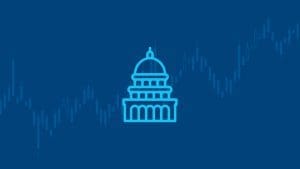On Dec. 5, 2024, the Commodity Futures Trading Commission (CFTC) filed its final reply brief in an ongoing legal battle with Kalshi, a top prediction market exchange that wants to list contracts tied to election outcomes.
Though Kalshi won a ruling in October allowing it to offer such contracts, the CFTC appealed, insisting it has the authority to block election-related bets. The stage is set for oral arguments on Jan. 17, 2025.
At the core of the dispute is a provision of the Commodity Exchange Act known as the “Special Rule,” which bars contracts based on illegal activity, terrorism, assassination, war, gaming, and similar forms of harmful conduct.
…the Commission may determine that such agreements, contracts, or transactions are contrary to the public interest if the agreements, contracts, or transactions involve— (I)activity that is unlawful under any Federal or State law; (II)terrorism; (III)assassination; (IV)war; (V)gaming; or (VI)other similar activity determined by the Commission, by rule or regulation, to be contrary to the public interest.
While elections do not directly fall under the more overtly dangerous categories, the CFTC contends that placing wagers on their outcomes amounts to unlawful election gambling under certain state laws. The battle now turns to how to interpret key terms in the Special Rule—“involve,” “gaming,” and “unlawful activity.”
The meaning of “involve”
The CFTC’s first line of attack is defending its interpretation of the word “involve.” A contract that involves one of the forbidden categories — unlawful activity, terrorism, assassination, war, gaming, or a similar activity — cannot be offered on a licensed derivatives exchange.
The CFTC insists that contracts referencing elections involve prohibited categories when these events are subject to wagers restricted by state law — in this case, election gambling. Kalshi counters that the agency is stretching the term “involve” far beyond its intended scope.
In defending its interpretation, the CFTC invoked a sports analogy:
Tennis involves a ball because you hit it back and forth. It also involves viewing stands because you can sit there to watch the match. That you would not sit on the ball or volley the seats does not require ‘toggling back and forth’ between inconsistent meanings of "involve."
In other words, just as a tennis match “involves” both a ball and the stands, election contracts “involve” gambling even if the bets do not mirror a typical casino game.
What is “gaming”?
The CFTC rejected Kalshi’s election contracts because the agency believed the contracts constituted election gambling. Kalshi pushed back, arguing that gambling requires a “game” that does not have commercial interests. Casino games aren’t affected by outside events, so they can’t be hedged. However, the CFTC’s brief rejects that argument, noting that Kalshi has acknowledged as much:
Kalshi appears to acknowledge that was Congress’s intent..., but argues it means that ‘[o]n a policy level’ Congress sought to cover ‘games’ that ‘are unlikely to serve any ‘commercial or hedging interest.’’…This argument, however, fails to account for the fact that sporting events also have economic effects, as do the enumerated categories ‘terrorism,’ ‘war,’ and ‘assassination.’
The CFTC doesn’t believe gambling is limited to games. It believes gambling includes “contests of skill,” which is how some state gambling laws also define “gambling.”. Elections, in this view, are skill-driven contests defined by campaigns, strategy, and public sentiment, thus contracts on such outcomes can constitute gambling.
Kalshi has attempted to justify election markets as financial tools for hedging risks, pointing out that who controls Congress can influence tax policies, regulations, and economic outcomes. The CFTC is unconvinced that congressional control is an event with concrete economic risks.
...As the Commission determined after notice and comment, control of one chamber of Congress does not, by itself, have sufficiently direct, predictable, or quantifiable economic consequences for the Contracts to serve an effective hedging function, and the binary payoff further limited the Contracts’ hedging utility.
“Unlawful activity” can depend on state law
Another layer of complexity comes from the interplay between federal and state law. Many states outlaw election gambling out of fear of its effect on election integrity. Federal law overrules state law, so a federally regulated financial exchange can legally offer election contracts in jurisdictions that explicity prohibit election betting.
However, the CFTC contends it has the authority to prohibit contracts that would be illegal to trade in some states. It is not the election itself that is illegal, the agency says, but placing bets on it in jurisdictions that forbid such activity.
“As the Commission observed, betting on elections is unlawful, not trading contracts on an exchange,” the CFTC argues.
The CFTC noted that “some state regulators are furious that Kalshi is offering election gambling.” Connecticut and Washington regulators expressed their displeasure in a casino.org article that the CFTC cited in their brief.
Kalshi argues that elections are not unlawful events, and the Special Rule should not hinge on the legal status of wagering in some states. But from the CFTC’s perspective, the line is clear: the Special Rule’s bar on “unlawful activity” means contracts referencing events closely tied to activities some states consider illegal—such as betting on elections—can be barred from regulated futures exchanges.
Allowing the Commission to review contracts that involve ‘gaming’ and ‘unlawful activity’ provides a backstop to DCMs end-running state laws that express these important policy choices. Kalshi’s argument the underlying event must either be unlawful or relate to unlawful activity is therefore without merit.
New nuances before oral arguments
Many of these points have been debated in earlier filings, but the CFTC’s latest brief refines and reinforces its positions. Oral arguments, scheduled for Jan. 17, will give the judges a chance to press both sides on the meaning of these terms. Although the underlying issues might seem trivial—does “involve” mean direct or indirect association or does “gaming” encompass elections—the stakes are substantial.
The judges’ decision could shape the future of federally regulated political markets, determining whether traders can lawfully bet on election outcomes in 2026 and 2028. Beyond this single case, the ruling may offer a broader signal about the level of deference courts will grant regulatory agencies in interpreting their own mandates, particularly as the courts become more skeptical of agency power in the wake of the Supreme Court’s retreat from the Chevron doctrine.
For policymakers, market participants, and legal observers, the outcome will either validate the CFTC’s cautious approach or endorse Kalshi’s vision of a marketplace where election results are just another asset class.

























